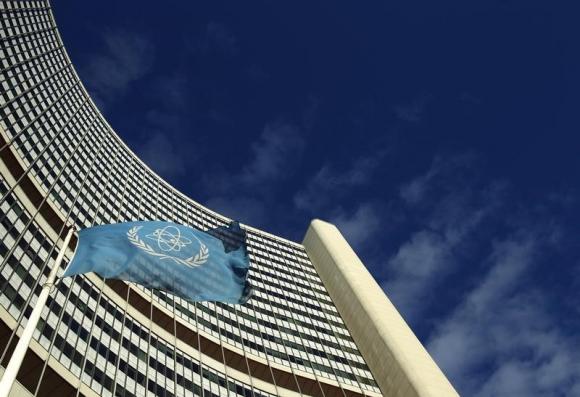 The flag of the International Atomic Energy Agency (IAEA) flies in front of its headquarters during a board of governors meeting in Vienna November 28, 2013.
The flag of the International Atomic Energy Agency (IAEA) flies in front of its headquarters during a board of governors meeting in Vienna November 28, 2013.CREDIT: REUTERS/HEINZ-PETER BADER[/caption]
(Reuters) -�Iran�has refused five times to let a U.N. atomic agency official, believed to be an American bomb expert, into the country as part of a team investigating its disputed nuclear activities, diplomats said.
Iran�says it has the right to decide who has access to its territory, adding it had allowed in other International Atomic Energy Agency (IAEA) staff seeking to advance a long-stalled probe into suspected atomic arms research.
But its repeated failure to provide a visa to one specific IAEA expert may reinforce an impression in the West of a continuing reluctance by Tehran to fully answer allegations that it has worked on designing a nuclear-armed missile.
For the IAEA "to be able to address the outstanding issues effectively, it is important that any staff member ... with the requisite expertise is able to participate in the agency's technical activities in Iran," the agency said in a confidential report to member states.
�The IAEA declined further comment or to say what the consequences might be for its investigation.
Iran denies U.S. and Israeli allegations that it has been trying to develop the capability to assemble atomic weapons. It is now in talks with six world powers on a broader diplomatic deal that would curb its nuclear program in exchange for a gradual lifting of sanctions.
The IAEA said Iran did not issue a visa for one member of the U.N. agency's team visiting Tehran last month, adding it was the fourth time this individual had been denied access. It did not specify the time period for the previous refusals.
In addition, diplomatic sources said the same person was not able to travel to the Iranian capital for another IAEA trip on Nov. 2 to press for progress in the investigation.
The IAEA did not identify the individual or reveal his or her nationality. Diplomats last month said they believed he was a U.S. national and an atomic arms expert.
IAEA member states have the right to deny access to individual inspectors proposed by the U.N. agency, and Iran has for several years blocked staff from some Western nations, including the United States, to check its nuclear sites.
But the separate, high-level IAEA team in charge of the inquiry into alleged bomb research - which at least on some occasions has included officials from�France, the United States and Britain - has several times visited Tehran since early 2012.
By Reuters
The Iran Project is not responsible for the content of quoted articles.










